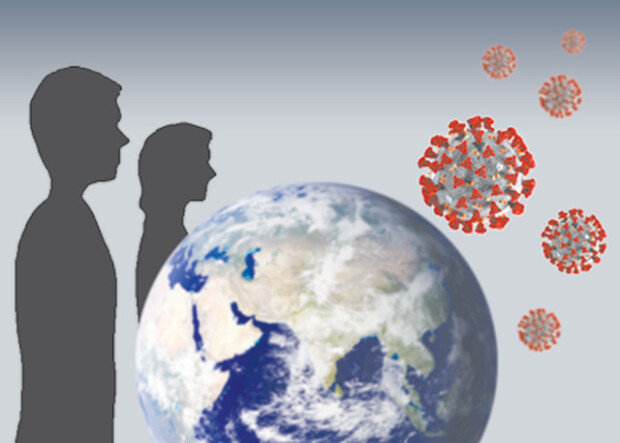Host of Planet Earth
Host of Planet Earth
Posted April. 18, 2020 07:26,
Updated April. 18, 2020 07:26

As fears over COVID-19 have overwhelmed all other concerns, people have not even had a chance to recognize fine dust, which hits the nation around this time every year, while this spring deepens unknowingly. In fact, air quality has been better this spring than in previous years, making people feel inconvenience due to fine dust. Meteorological factors, including stronger winds and frequent precipitations, must have had influence on fine dust levels, but a more fundamental reason is that the coronavirus caused industrial activities to contract, which led to reduction in fossil fuel use, while greenhouse gas emissions and fine dust have declined fundamentally. The level of greenhouse gas emissions, which was difficult to reduce with humans’ own efforts, is decreasing due to the impact of a virus, which is paradoxical.
When we see people who are ordered shelter-in-place, cities under lockdown and closed national borders around the world, we almost feel as if we are watching scenes in disaster movies. They are similar to scenes of aliens invading the Earth, and emergence of monsters that threaten human-beings in movies. But the virus is neither an alien nor a monster. A microscopic virus, which is invisible with our naked eyes, poses threat to human beings.
We humans have thought that we are the host of Planet Earth. Even experts in the scientific community seriously discussed about the argument that we should label as “Anthropocene” the modern era, which human impact will most vividly remain on geological layers in the 4.5-billion-year history of the Earth. As we realize what has brought human activities to a screeching halt across the entire globe is none other than a virus, we come to question who the genuine host of this planet is.
Humans have been evolving while co-existing with microorganisms such as bacteria and viruses. The human body consists of 10 trillion cells, but 100 trillion different microorganisms are living with us both in and outside of our body. Microorganisms in our body not only help our digestion and establish our immune system, but also affect the brain and control our thinking. A virus, which measures just one 1,000th the size of bacterium, survives and thrives by using microorganisms as host. Then, is the virus Planet Earth’s hidden host that is changing climate of the Earth and our behaviors after all?
April 19 was once commemorated as Science Day in South Korea. Kim Yong-gwan, a scholar who published the popular magazine “Science Joseon” in 1932, designated April 19 as “Science Day” in 1934, the 50th anniversary of the death of Charles Darwin to remember the impact of the Evolutionary Theory on science. The message of the Evolutionary Theory is that all creatures originate from a common life, and humans are one of countless organisms, which should live in harmony with other organisms. However, numerous living organisms are under threat for survival due to the destruction of nature by human-beings. Recently, Pope Francis said that it is unknown whether COVID-19 is revenge of nature on human beings, but it is clearly a response from the nature, stressing that the virus is related to climate change wrought by human beings.
As Science Day would coincide with the April 19 Revolution Day, it was shifted to April 21 from 1969 because South Korea needed to commemorate the day of the Science and Technology Ministry’s inauguration and has been observed accordingly until this day. April 22 is “Earth Day” that we have to think about anew ways for all different living organisms to co-exist and maintain the Earth as a beautiful planet.
Eun-Taek Lee nabi@donga.com
Headline News
- Med professors announce intention to leave hospitals starting Thursday
- Bridge honoring Sgt. Moon Jae-sik unveiled in Pennsylvania
- Chief of Staff Chung tells presidential secretaries to stay away from politics
- US FTC bans noncompete agreements
- N. Korea launches cyberattacks on S. Korea's defense companies







